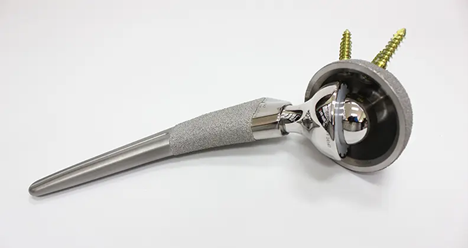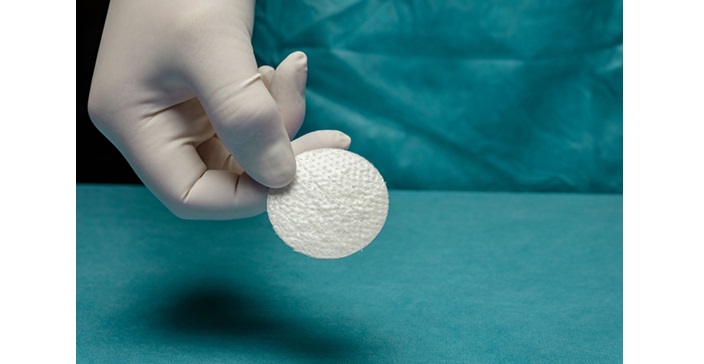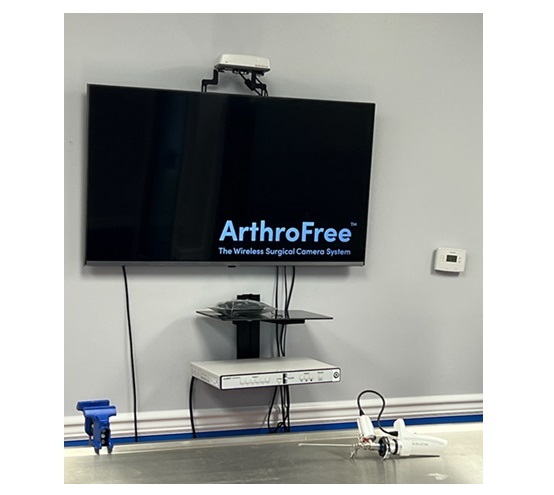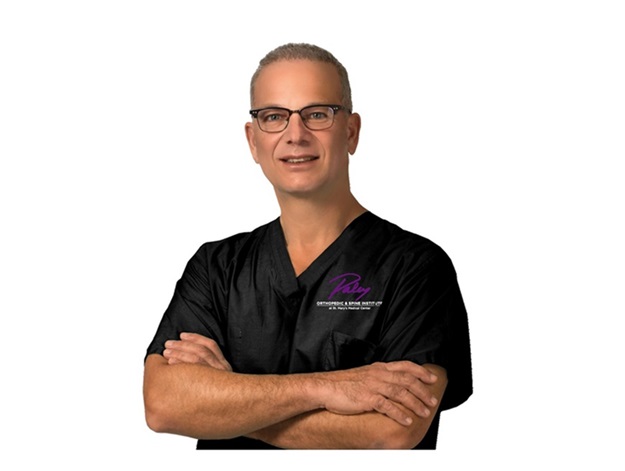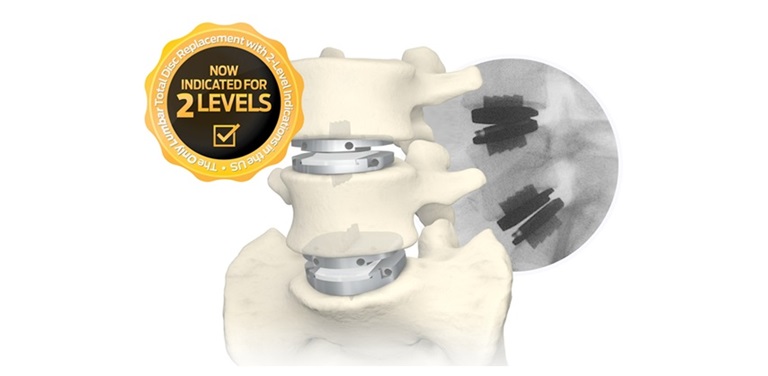OrthoDome Forum Features a Video of the Reverse HRS Hip Replacement Procedure;
Presentation also Features Five-Year Radiostereometric Analysis and
Patient Reported Outcome Measures of the Reverse HRS
SAN FRANCISCO, Feb. 15, 2024 /PRNewswire/ — Hip Innovation Technology, LLC (HIT), a medical device company developing innovative orthopedic device solutions to advance the quality of life and quality of care for patients, today announced that its flagship product, the Reverse Hip Replacement System (Reverse HRS) was showcased at the 2024 American Academy of Orthopaedic Surgeons (AAOS) annual meeting, taking place in San Francisco, CA from February 12 -16, 2024.
“We are extremely excited that the Reverse HRS was featured at AAOS in the OrthoDome with a video of an actual hip replacement surgery narrated by Dr. Adolph Lombardi,” said George Diamantoni, Hip Innovation Technology’s Co-Founder and Chief Executive Officer. “In addition to a bird’s eye view of this new hip replacement technology, the presentation also included five-year RSA and patient-recorded outcome measures.”
The AAOS OrthoDome surgical video and live narration was led by Adolph V. Lombardi Jr., MD, FAAOS, JIS Orthopedics. The presentation featured high resolution video of Dr. Lombardi conducting a hip replacement with the new Reverse HRS. Dr. Lombardi narrated the video procedure and provided updated five-year RSA and Patient-Reported Outcome Measures (PROM) data compiled from Reverse HRS patients.
“Total hip arthroplasty is one of the most common joint replacement procedures conducted around the world and can benefit from device improvement and innovation,” said Dr. Lombardi. “The Reverse HRS provides patients and physicians an option that minimizes the risk of dislocation at extended ranges of motion in all planes. The addition of the Reverse HRS has the potential to eliminate other common complications associated with THA.”
Reverse HRS Registrational Trial Underway
In 2023, Hip Innovation Technology launched its pivotal clinical research trial under an FDA approved Investigational Device Exemption (IDE). The IDE Study is being conducted to determine the safety and effectiveness of the HIT Reverse HRS in Primary Total Hip Arthroplasty (THA). Safety will be assessed through the collection of device-related adverse events and patient quality of life metrics. Effectiveness will be evaluated using clinical, radiologic, and patient-reported outcomes.
Stephen Zabinski, MD, Director of the Division of Orthopaedic Surgery, Shore Medical Center in Ocean City, New Jersey, performed the first surgery using this exciting new technology on January 10, 2023. “I’m pleased to see the Reverse HRS being featured at the 2024 AAOS OrthoDome,” said Dr. Zabinski. “As the registrational trial matures, more of the mainstream orthopedic community will appreciate the potential benefits of this technology, especially in complex scenario patients and those deemed high risk for post-op dislocation like spine-pelvic disorders, hyper mobility or increased laxity, hip fractures or revisions.”
Previous RSA and Patient Outcomes Data
The Bone & Joint Open journal, recently published the article, “Radiostereometric analysis and clinical outcomes of a novel reverse total hip system at two years.”
This publication demonstrated that the Reverse HRS delivered excellent fixation with a predicted low risk of revision at ten years, mean migration below the level of radiostereometric analysis (RSA) detection for both the femoral and acetabular components, and high rates of patient satisfaction including no patients reporting symptoms consistent with soft-tissue impingement within the articulation and no symptoms consistent with adverse reaction to metal debris.
Hip replacement surgery, or total hip arthroplasty, is one of the most common joint replacement procedures done in the United States. According to the Agency for Healthcare Research and Quality, more than 450,000 total hip replacements are performed each year in the United States. In fact, by 2030 approximately 850,000 patients are expected to undergo the procedure each year. Total hip replacements are one of the most effective ways to reduce joint pain and improve functioning for patients with advanced hip problems. During the 2015 calendar year, approximately 324,000 surgeries were performed in the U.S. and 50,000 in Canada.
HIT has extensively tested the Reverse HRS in over 90 standard and unique pre-clinical experiments to assess the product safety and clinical benefits anticipated by the unique system design.
About the Reverse HRS
The Reverse HRS is a Metal-on-Polyethylene reverse geometry hip prosthesis designed to improve stability at extended ranges of motion and reduce the risk of dislocation. Like most conventional systems, the Reverse HRS consists of a femoral stem, an acetabular cup and a cobalt-chrome ball that articulates within a polyethylene liner. Unlike existing total hip replacement systems, the ball is placed on a trunnion within the acetabular cup instead of the femoral stem, and the polyethylene liner is attached to a femoral cup, which then attaches to the femoral stem, as opposed to the polyethylene liner being attached to the acetabular cup. This technological difference does not change the center of rotation of the Reverse HRS and it remains similar to a normal physiological hip, or a well-positioned traditional Total Hip Arthroplasty. The advanced Reverse HRS implant is designed to provide greater range of motion in all planes, enhanced hip stability, and to reduce the risk of dislocation. Importantly, the Reverse HRS also provides variability of component placement including higher abduction angles and anteversion of the acetabular cup. The femoral cup articulates around the acetabular ball and overlaps with the acetabular cup as the hip undergoes flexion-extension, abduction-adduction and internal-external rotation. This forgiving design may compensate for suboptimal component positioning which may provide benefits such as extended range of motion, hip stability and reduced likelihood of impingement. The Reverse HRS is designed to uncouple the relationship between component placement, wear and stability. This unique implant design of the Reverse HRS provides optimal surface area contact between the acetabular ball and femoral cup, which may eliminate edge loading. Elimination of edge loading may provide benefits that include reduced high-contact stresses, decreased implant wear and uniform wear, which minimizes generation of wear debris and associated concerns related to osteolysis.
About Hip Innovation Technology, LLC
Headquartered in Boca Raton, Florida, Hip Innovation Technology was formed in 2011 to provide market-leading orthopedic device solutions that advance the quality of life and quality of care for patients. In partnership with healthcare professionals worldwide, our goal is to identify unmet clinical need, then design, manufacture and ultimately market innovative orthopedic reconstructive and related surgical product solutions.
For more information, visit www.hipinnovationtechnology.com.
Contact:
John F. Kouten
JFK Communications, Inc.
(609) 456-0822
jfkouten@jfkhealth.com
SOURCE Hip Innovation Technology, LLC


